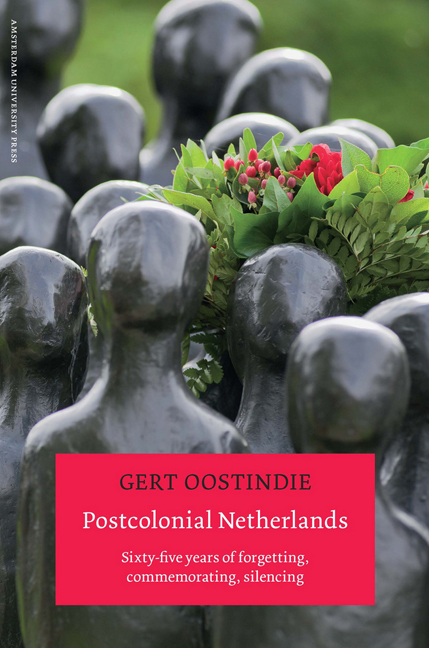Book contents
- Frontmatter
- Contents
- Introduction
- 1 Decolonization, Migration and the Postcolonial Bonus
- 2 Citizenship: Rights, Participation, Identification
- 3 The Struggle for Recognition: war and the Silent Migration
- 4 The Individualization of Identity
- 5 Imagining Colonialism
- 6 Transnationalism: a Turning Tide?
- 7 An International Perspective
- 8 ‘Postcolonial’ (in the) Netherlands
- Notes
- Bibliography
- Acknowledgements
- Index of People, Organizations and Memorial Sites
5 - Imagining Colonialism
Published online by Cambridge University Press: 20 January 2021
- Frontmatter
- Contents
- Introduction
- 1 Decolonization, Migration and the Postcolonial Bonus
- 2 Citizenship: Rights, Participation, Identification
- 3 The Struggle for Recognition: war and the Silent Migration
- 4 The Individualization of Identity
- 5 Imagining Colonialism
- 6 Transnationalism: a Turning Tide?
- 7 An International Perspective
- 8 ‘Postcolonial’ (in the) Netherlands
- Notes
- Bibliography
- Acknowledgements
- Index of People, Organizations and Memorial Sites
Summary
A few years ago, in an unguarded moment of visible irritation, the then Dutch Prime Minister, Jan Peter Balkenende, allowed himself to be drawn into appealing to the country to follow the positive example of the Verenigde Oost-Indische Compagnie – the Dutch East India Company (VOC). The footage of these words being spoken in the Lower House of the Dutch parliament suggest that he too was somewhat shocked by his own bold comparison. ‘Don't you think?’, he added in slight hesitation. Mild embarrassment seems to have descended on the parliament, accompanied here and there by disbelief and derision. The political and media reactions were predictable: there are so many painful questions surrounding the VOC that the Prime Minister should never have referred to it so lightly. And that is where it ended. Parliament does not debate history, unless it really cannot be avoided.
What was more remarkable, however, was the almost complete absence of comment from Indisch Dutch and Moluccans. Praise of the voc, while not endorsed, was not experienced as insulting, it would seem. Perhaps the more critical minds were still too fatigued by the 2002 VOC anniversary celebrations to regurgitate the familiar counterstory for the umpteenth time. Perhaps the fire had quite simply gone out. On the other hand, Surinamese organizations protested in a demonstration and sent an indignant letter to Balkenende demanding ‘apologies, atonement and restitution for the VOC era he so praised’, especially as this was also the era of the West Indian Company (WIC) and its slave trade. Thus, a couple of rhetorical turns transformed an unfortunate remark about the VOC into an unforgivable insult of the Afro-Surinamese. Antilleans were not mentioned at all.
This turn was typical, or at least characteristic of sensibilities in the Netherlands at the beginning of the twenty-first century. Things had been different in the past. Then we were expected to be proud of the VOC and what succeeded it. Little was said or written about the wic or more broadly about colonialism in the Atlantic region, not so much out of a sense of shame, but because that particular history was considered unimportant and not very interesting.
- Type
- Chapter
- Information
- Postcolonial NetherlandsSixty-Five Years of Forgetting, Commemorating, Silencing, pp. 130 - 162Publisher: Amsterdam University PressPrint publication year: 2012



